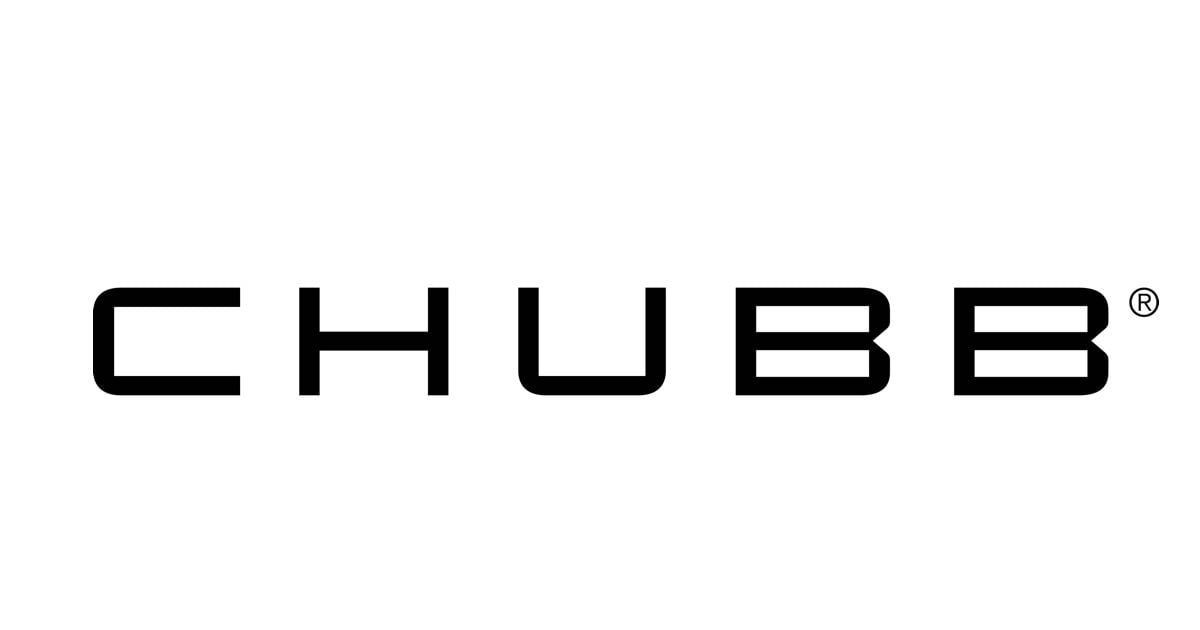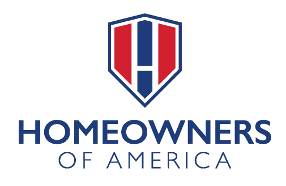Key takeaways
Chubb, USAA and Amica received the highest ratings in our analysis of home insurers in Missouri.
Allstate is the best cheap insurer in Missouri, with a star rating of 4.5 and an average annual premium of $3,000.
Chubb, Amica and USAA are among the best home insurance companies in Missouri, according to our analysis.
We analyzed data from more than 30 insurance companies to help you find the best home insurance in Missouri. Below are the insurers that earned 5 stars in our analysis.
Rates are based on a sample homeowner with good credit, $300,000 of dwelling coverage, $300,000 of liability coverage and a $1,000 deductible.
Note: Some insurance companies included in this article may have made changes in their underwriting practices and no longer issue new policies in your state.
Company | NerdWallet star rating | Average annual rate |
|---|---|---|
Not available | ||
Not available | ||
Not available | ||
$3,290 | ||
Not available | ||
$3,000 | ||
$4,305 | ||
Not available | ||
USAA* | $2,510 | |
*USAA membership is open only to active military, veterans, some federal employees and their families. | ||
Get home insurance quotes in minutes
Answer a few questions to see custom quotes and find the right policy for you.The best home insurance companies in Missouri
Here's more information about the best homeowners insurance companies in Missouri.
Note: Some insurance companies included in this article may have made changes in their underwriting practices and no longer issue new policies in your state.

Chubb
- Far fewer consumer complaints than expected for a company of its size.
- Standard coverage includes features that many companies offer only as extras.
- Perks to help you protect your home.
- Most consumers can't get a quote online and will instead need to contact a local agent.
Chubb caters to upscale homeowners, offering coverage other insurers often charge extra for. For example, the company’s policies include extended replacement cost coverage for the structure of your home. This is useful in case it costs more than your dwelling limit to rebuild after a disaster. Chubb’s standard policies also cover water damage from backed-up sewers and drains.
Chubb policyholders may be eligible for the company’s HomeScan service, which uses infrared cameras to look for problems in the walls of your home.
» READ MORE: Chubb homeowners insurance review

Amica
- High customer satisfaction ratings and low consumer complaints.
- Platinum Choice package offers extra coverage.
- Dividend policies can return a portion of your premiums.
- You can start a quote online but may have to finish the buying process by phone.
Amica shines when it comes to customer service. It draws a very low rate of complaints compared to other insurers, according to the National Association of Insurance Commissioners. Amica also earned high marks in two recent J.D. Power surveys about home insurance and customer satisfaction.
The company stands out for its broad range of coverage options. For example, you can add extra coverage above your dwelling limit in case your house costs more to rebuild than expected. You may also want to add coverage for identity theft or damage from backed-up drains.
» READ MORE: Amica homeowners insurance review

Cincinnati Insurance
- Various coverage options.
- Far fewer complaints than expected for a company of its size.
- Coverage available for higher-value homes.
- No online quotes.
- Very little information on website.
If you want to support companies that value sustainability, consider Cincinnati Insurance. In recent years, the insurer has cut fossil fuel emissions from both its facilities and company vehicles. When you buy Cincinnati home insurance, you may be able to add a “green upgrade” endorsement. This means you can use eco-friendly materials to repair or rebuild your home after a claim.
The company offers a variety of other options, including comprehensive coverage for high-value homes. You may be able to add coverage for things like identity theft, personal cyber attacks or certain types of water damage.
» READ MORE: Cincinnati homeowners insurance review
State Farm
- User-friendly website.
- Agents offer personalized service.
- Policies generally include extra coverage for your home’s structure.
- Below average for claim satisfaction in a recent J.D. Power study.
As America’s largest home insurer, State Farm stands out for its long list of coverage options. Its policies generally include extra dwelling coverage in case it costs more than expected to rebuild your home.
You may be able to add coverage for things like identity theft and water damage from backed-up drains. Another option may be to add an inflation guard rider to your policy. This automatically increases your policy limits to keep up with rising costs.
State Farm offers a free Ting smart plug to home insurance policyholders as a perk. This device monitors your home’s electrical network to help prevent fires.
» READ MORE: State Farm homeowners insurance review

Country Financial
- Far fewer complaints than expected for a company of its size.
- Many coverage options available.
- Can get an online quote but must finish the purchase over the phone.
Country Financial has many levels of homeowners coverage to help you choose the package that’s best for you. You can also add extra coverage for the structure of your home, in case your policy limit isn’t enough to cover the cost of rebuilding.
Country Financial sells homeowners insurance through local representatives. The company draws a very low rate of consumer complaints to state regulators.
» READ MORE: Country Financial homeowners insurance review
Allstate
- Lots of discounts to help you save.
- Home-sharing coverage available.
- Many ways to customize your coverage.
- Ranked below average for consumer satisfaction in recent J.D. Power studies.
Allstate offers lots of ways to customize your policy, including replacement cost coverage for your personal property and coverage for water damage caused by backed-up drains. Other options may include home-sharing coverage and reimbursement for replacing damaged items with energy-efficient one.
You may also be able to upgrade your policy with the Enhanced Package. One benefit of this package is Deductible Rewards, which takes $100 off your deductible when you sign up, plus an additional $100 off for each year without a claim. If you do file a claim, your rates won’t go up.
» READ MORE: Allstate homeowners insurance review

American Family
- Low rate of consumer complaints.
- Free wildfire prevention services in select states.
- Discounts available for qualifying smart-home devices.
- May restrict liability coverage for certain dog breeds.
American Family is notable for offering broad coverage for your home’s structure. If you insure your home up to its replacement cost, American Family will automatically add extended replacement coverage to your policy. This means the insurer will pay a certain amount above your dwelling limit to repair or rebuild your home.
American Family has a long list of extras you can add to your policy. For instance, you can buy coverage in case a major appliance breaks down or an underground utility line needs repairs. Discounts may be available for installing smart-home devices, bundling multiple policies or setting up automatic payments.
» READ MORE: American Family homeowners insurance review

Openly
- Policies typically include guaranteed replacement cost coverage for your home's structure.
- Broad coverage for personal belongings.
- No restricted dog breeds.
- No online quotes.
Openly’s default homeowners policy goes above and significantly beyond those of many other insurers. Notably, it offers guaranteed replacement cost coverage for the structure of your home. That means if your house is destroyed by a covered disaster, Openly will pay whatever it takes to rebuild it the way it was before.
Unlike many other insurers, Openly doesn’t have dog breed restrictions that could affect your liability coverage eligibility. It may also be a good bet for homeowners with jewelry or other valuables, with up to $100,000 of blanket coverage available for these items.
» READ MORE: Openly homeowners insurance review

USAA
- Policies include standard coverage that often costs extra elsewhere.
- Fewer customer complaints to state regulators than expected for a company of its size.
- Perks for military homeowners.
- Available only to active military members, veterans, some federal employees and their families.
USAA sells homeowners insurance to active military members, veterans, some federal employees and their families. If that’s you, you may want to consider USAA. The company offers perks that are specific to members of the military, like deductible-free coverage for military uniforms and equipment.
USAA homeowners insurance has certain features that many insurers charge extra for. For example, USAA covers your personal belongings on a replacement cost basis. That means you’ll get enough money to buy brand-new replacements for damaged items. Many companies pay only what something is worth at the time of the claim.
» READ MORE: USAA homeowners insurance review
How much does homeowners insurance cost in Missouri?
The average annual cost of home insurance in Missouri is $3,290. That’s 56% more than the national average of $2,110.
In most states, including Missouri, many insurers use your credit-based insurance score to help set rates. Your insurance score is similar but not identical to your traditional credit score.
In Missouri, those with poor credit pay an average of $6,195 per year for homeowners insurance, according to NerdWallet’s rate analysis. That’s 88% more than what those with good credit pay.
Average cost of homeowners insurance in Missouri by city
How much you pay for homeowners insurance in Missouri depends on where you live. For instance, the average cost of home insurance in St. Louis and Kansas City is $3,290 per year, while homeowners in Columbia pay $3,020 per year, on average.
City | Average annual rate | Average monthly rate |
|---|---|---|
Arnold | $3,045 | $254 |
Ballwin | $2,940 | $245 |
Blue Springs | $3,260 | $272 |
Cape Girardeau | $3,160 | $263 |
Chesterfield | $2,955 | $246 |
Columbia | $3,020 | $252 |
Fenton | $2,955 | $246 |
Florissant | $2,980 | $248 |
Independence | $3,245 | $270 |
Jefferson City | $3,290 | $274 |
Joplin | $3,415 | $285 |
Kansas City | $3,290 | $274 |
Lees Summit | $3,290 | $274 |
Liberty | $3,110 | $259 |
Nixa | $3,220 | $268 |
O'Fallon | $3,210 | $268 |
Ozark | $3,250 | $271 |
Poplar Bluff | $3,145 | $262 |
Sedalia | $3,130 | $261 |
Springfield | $3,235 | $270 |
St. Charles | $3,010 | $251 |
St. Joseph | $3,190 | $266 |
St. Louis | $3,290 | $274 |
St. Peters | $3,055 | $255 |
Wentzville | $3,025 | $252 |
The cheapest home insurance in Missouri
Here are the insurers we found with average annual rates below the Missouri average of $3,290.
Common risks for Missouri homeowners
Here are some of the most common risks homeowners in the state face and what steps can be taken to protect homes in Missouri.
Winter weather
A standard homeowners policy will cover most damage from winter storms. However, some types of winter weather damage may require extra coverage.
For instance, if you have flood damage caused by snowmelt, you’ll typically need a separate flood insurance policy. Damage caused by negligence, such as frozen pipes if you fail to keep your heat at an adequate temperature while you’re out of town, may also not be covered.
Flooding
Homeowners insurance policies usually don't cover flood damage. That means homeowners in high-risk areas may need to buy flood insurance. And while you can buy flood coverage anytime, there’s often a 30-day waiting period before the insurance goes into effect.
To check your flood risk, start by looking up your address on the Federal Emergency Management Agency's flood maps. Keep in mind FEMA’s maps don’t always capture all types of flood risk. You may want to check another source, like First Street, a private company that models climate hazards. Enter your address at the top of the page to see your home’s flood risk rating on a scale of 1 to 10.
» MORE: Do I need flood insurance?
Earthquakes
Standard homeowners insurance policies don't typically cover structural damage due to an earthquake. However, you may have some coverage for related damage. For instance, if a gas line dislodged by the earthquake starts a fire, that may be covered.
If you live in an area with higher risk, consider buying earthquake insurance. Note this coverage often has a separate deductible, which can be as high as 20% of your dwelling coverage. For example, if you have a 20% deductible on $200,000 of coverage, you'd pay $40,000 out of pocket before your insurance kicks in.
Tornadoes and high wind
A standard homeowners insurance policy often covers wind damage, but you may have a separate wind deductible. This can be a flat rate, such as $1,000, or a percentage of your dwelling coverage. For example, your policy may have a $1,000 deductible for most claims and a 1% deductible for wind claims. So if your house has $250,000 worth of dwelling coverage, you’d have to pay for the first $2,500 of wind damage yourself.
Missouri insurance department
In Missouri, the Department of Insurance oversees the state’s insurance industry. Its website provides insurance information and instructions about how to file a complaint against your insurer.
If you have questions or need help resolving a complaint, call the Division of Consumer Affairs at 800-726-7390 from 8 a.m. to 5 p.m. Mondays through Fridays. You can also file a complaint online using the Consumer Complaint Form or by mail or fax.
How we rate homeowners insurance
NerdWallet’s star ratings reward companies for consumer-first features and practices. We evaluate factors such as consumer experience, coverage, discounts and financial strength.
In our research, we analyzed:
More than 270 million homeowners insurance rates.
More than 100 insurance companies.
Nearly 200 homeowner profiles.
View our complete homeowners insurance rating methodology.
Frequently asked questions
Homeowners insurance isn't required by Missouri state law. However, your lender may require you to purchase home insurance. For more information, read Is Homeowners Insurance Required?
Missouri homeowners insurance doesn't cover damage from earthquakes unless you have bought additional coverage. Read more about earthquake insurance.
There are several ways to save money on homeowners insurance in Missouri:
Shop around to make sure you’re getting the best rate.
Choose a higher deductible. In case of any claims, you’ll pay more out of pocket, but your premiums will be lower.
Bundle your home and auto insurance for a lower overall rate. See the best home and auto insurance bundles.
Ask your insurer if you qualify for any home insurance discounts.
Star rating methodology
NerdWallet’s homeowners insurance ratings reward companies for customer-first features and practices. Ratings are based on weighted averages of scores in several categories, including financial strength, consumer complaints, coverage, discounts, claims process and website functionality. These ratings are a guide, but we encourage you to shop around and compare several insurance quotes to find the best rate for you. NerdWallet does not receive compensation for any reviews or star ratings.
Here’s how we weighted each category to come up with our list of the best home insurance companies:
Consumer experience (40%).
Financial strength (30%).
Coverage (25%).
Discounts (5%).
Read our full home insurance ratings methodology for more details.
Homeowners insurance rates methodology
NerdWallet calculated median rates for 40-year-old homeowners from various insurance companies in the 25 largest cities in each U.S. state by population. All rates are rounded to the nearest $5.
Sample homeowners were nonsmokers with good credit living in a single-family, two-story home built in 1984. They had a $1,000 deductible and the following coverage limits:
$300,000 in dwelling coverage.
$30,000 in other structures coverage.
$150,000 in personal property coverage.
$60,000 in loss of use coverage.
$300,000 in liability coverage.
$1,000 in medical payments coverage.
We made minor changes to the sample policy in cases where rates for the above coverage limits or deductibles weren’t available.
In states where credit is a rating factor, we changed the credit tier from “good” to “poor,” as reported to the insurer, to see rates for homeowners with poor credit.
These are sample rates generated through Quadrant Information Services. Your own rates will be different.
Complaint methodology
NerdWallet examined complaints received by state insurance regulators and reported to the National Association of Insurance Commissioners in 2022-2024. To assess how insurers compare with one another, the NAIC calculates a complaint index each year for each subsidiary, measuring its share of total complaints relative to its size, or share of total premiums in the industry. To evaluate a company’s complaint history, NerdWallet calculated a similar index for each insurer, weighted by market shares of each subsidiary, over the three-year period.
NerdWallet conducts its data analysis and reaches conclusions independently and without the endorsement of the NAIC. Ratios are determined separately for auto, home (including renters and condo) and life insurance.






